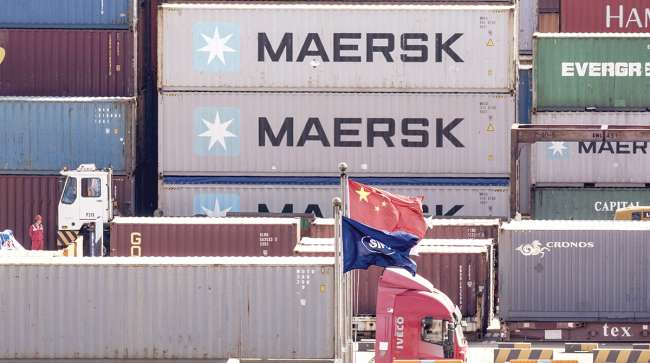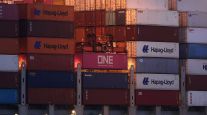Senior Reporter
Trucking, Port Officials Praise US-China 'Phase One' Trade Deal

[Stay on top of transportation news: Get TTNews in your inbox.]
Trucking and transportation leaders praised the news that the United States and China reached an agreement to stave off a round of tariffs just days before they were set to take effect Dec. 15.
The White House on Dec. 13 issued a statement from President Donald Trump announcing that a deal had been reached.
“We have agreed to a very large phase one deal with China,” Trump said in the statement, referring to the initial round of tariffs that were set to take effect. “They have agreed to many structural changes and massive purchases of agricultural product, energy and manufactured goods, plus much more.”
On Twitter, Trump added, “We will begin negotiations on the phase two deal immediately, rather than waiting until after the 2020 election. This is an amazing deal for all. Thank you!”
American Trucking Associations in a statement praised the deal and pointed to the importance of the trucking industry when it comes to trade. "We congratulate President Trump and his team of negotiators on securing this hard-fought agreement, which is a big step toward resolving the ongoing trade impasse with China,” ATA President Chris Spear said. “As the nation’s leading mover of freight, the trucking industry places enormous value on free and fair trade and knows why it’s critically important for the long-term growth of our economy.”

Spear
Tariffs that were set to take effect on Dec. 15 included a 15% fee on $156 billion in products, including many consumer goods such as computers and other electronic equipment. U.S. Trade Representative Robert Lighthizer noted that the U.S. would retain 25% tariffs on an estimated $250 billion in Chinese products. Some of the nation’s ports, especially those on the Pacific Coast, have loudly complained that tariffs on Chinese goods have been hurting business. Port of Los Angeles Executive Director Eugene Seroka told reporters during a November meeting in Washington, D.C., that tariffs threatened 1.5 million jobs and $186 billion in economic activity.
Port officials and others told Transport Topics that while they are pleased an agreement has been announced, they want more details. “This is certainly encouraging,” Port of L.A. Media Relations Director Phillip Sanfield told TT. “We have been calling for a negotiated settlement on all tariffs for well over a year. This hopefully will begin the long road to returning global trade back to some stability. There has been a lot of damage done on both the import and export side to U.S. manufacturers and farms. But we are very encouraged by this step.”
Economist Paul Bingham, director of transportation consulting with IHS Markit, told TT he wants to see the fine print on the deal.
“It’s positive that both sides are saying there is a phase one deal. We have to see more details,” he said, but added that he thinks the short-term impact on the economy will be minimal. “We’re to the point, in December, in the slow season. We already had to beat the tariffs, for the 15th date; this phase two is too late to have forestalled any of that advanced ordering, advanced shipping,” he said. One of the key sticking points in the tariff dispute concerns the amount of agricultural products China would accept. The Trump administration said China under this agreement will purchase between $40 and $50 billion in U.S. agricultural products over the next two years.

Bingham
That could be good news to the Port of Oakland, as the facility is a major supplier of agricultural products overseas — commodities account for about 37% of all international exports shipped from Oakland. Farm goods range from containerized rice to dried fruits, nuts and refrigerated beef. “The tariff problem is one that is front and center for our import/export customers; the tariffs do not help. They are somewhat of a headwind for us,” Port of Oakland Executive Director Danny Wan told TT. “We are getting strong demand for California and U.S. products being imported to Asia.” Wan pointed out the port in November 2018 opened a 280,000-square-foot refrigeration facility for beef, pork and chicken, and most of those products are being shipped to Asia. The facility can handle 1 million tons per year of frozen products.
READ MORE: New Executive Director Danny Wan Sees Bright Future for Port of Oakland
Another significant trade agreement also is gaining momentum and nearing approval in the U.S. House of Representatives. The United States, Mexico, Canada agreement is an update of the 25-year-old NAFTA treaty. The trucking industry says it moves $772 billion worth of goods crossing the borders with Mexico and Canada every year. Trucking leaders say it’s been a good week for the industry. “Coming on the heels of a major breakthrough on USMCA this week, today’s agreement is a significant victory for America’s truckers as we keep the economy moving forward,” said ATA’s Spear.
Want more news? Listen to today's daily briefing:




